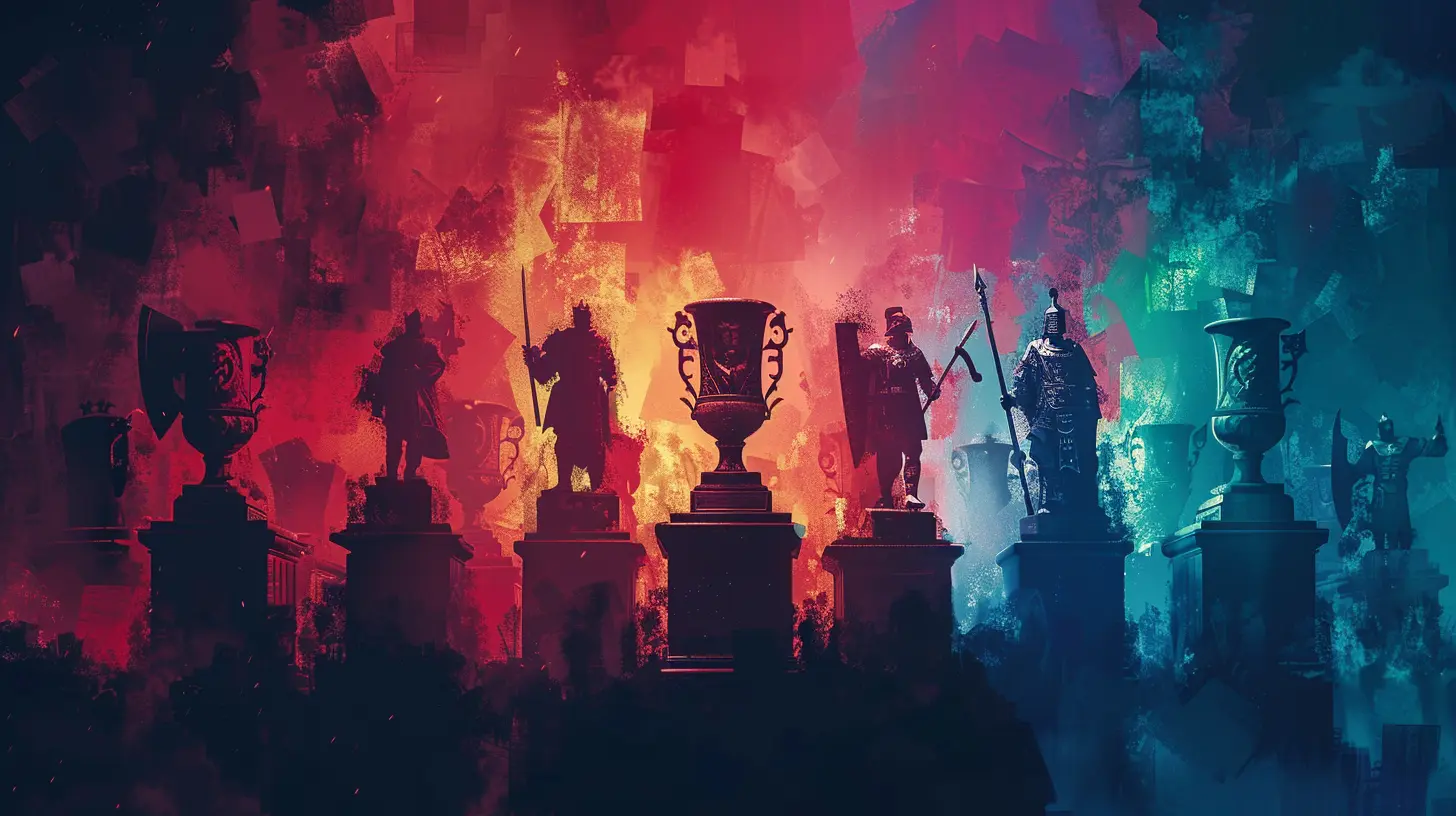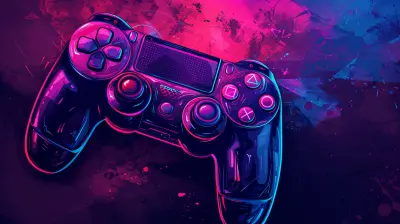10 December 2024
Gaming has been on a non-stop ride of evolution, hasn’t it? From the pixelated days of Pac-Man to the jaw-dropping realism of today’s AAA titles, the medium has grown exponentially. But have you ever wondered what really nudges gaming into its next big leap? Let me clue you in—Game Awards do more than just hand out trophies and applause. They act as trendsetters, a crystal ball for what’s coming next in the gaming universe.
In this article, we’ll uncover how these awards aren't just about celebrating the past year's achievements but also about pointing toward the future. Whether you’re a hardcore gamer, a casual enthusiast, or just someone curious about where gaming is headed, you’re in for a treat.
What Are Game Awards and Why Do They Matter?
You might be asking, “Aren’t Game Awards just fancy events where developers wear suits and thank their moms?” Sure, on the surface, they might look like that. But let’s dig a bit deeper. Game awards—like The Game Awards, DICE Awards, and BAFTA Games Awards—serve a bigger purpose.These ceremonies don’t just acknowledge the best of the best; they spotlight the games, studios, and innovations that are pushing boundaries. Remember how movies like Avatar reshaped the film industry? Game Awards do something similar for gaming. They influence where the industry invests its energy: whether it’s new gameplay mechanics, groundbreaking storytelling, or technological advancements.
Celebrating Innovation and Creativity
Let’s be honest: the gaming industry is fiercely competitive. When a studio wins a Game Award, it’s not just a feather in their cap—it’s a validation of their approach. Take, for example, when The Legend of Zelda: Breath of the Wild grabbed the spotlight in 2017. Its open-world gameplay wasn’t just innovative; it became a gold standard, a blueprint that countless games like Genshin Impact and Elden Ring adopted and expanded upon.Winning an award often works like a domino effect. The highlighted creativity inspires more developers to think outside the box. It’s like when your favorite coffee shop starts selling pumpkin spice lattes—soon, every café in town is doing the same. Except in gaming, this ripple effect often leads to genuine, game-changing breakthroughs.
Tech Trends and Game Awards: A Symbiotic Relationship
Have you ever noticed how Game Awards also seem to emphasize certain technologies? One year it’s all about VR (virtual reality), the next it’s ray tracing or AI-driven NPCs. Coincidence? I think not.Virtual Reality Gets Its Moment
Back in 2019, games like Beat Saber and No Man’s Sky VR stole the show, signaling that VR was more than a niche gimmick. Post-awards, there was a noticeable uptick in VR investments. Even non-gaming brands started taking VR development seriously.Ray Tracing and Graphics Overhauls
Fast forward to 2020, and suddenly all anyone could talk about was NVIDIA’s ray tracing tech. Games like Cyberpunk 2077 and Control made everyone realize just how much lighting could transform the gaming experience. After these games snagged awards, almost every AAA developer jumped on the ray-tracing bandwagon, making it an industry standard.
Narrative-Driven Games Are Here to Stay
Have you ever played a game so immersive it felt like you were living a movie? That’s the power of narrative-driven gaming. And guess what? Game Awards have been shining a big ol’ spotlight on these masterpieces for years. Titles like The Last of Us Part II and Red Dead Redemption 2 weren’t just critically acclaimed; their stories redefined what players expect from gaming.Here’s the kicker: when these games win multiple awards, it sends a loud-and-clear message to developers—“We want more of this!” Today, you’ll notice even indie games are focusing heavily on storytelling, proving that this trend isn’t going anywhere.
Indie Games: The Underdogs That Shine
Speaking of indie games, have you ever rooted for the underdog? There’s something magical about an indie title taking home an award against multi-million dollar giants. Remember how Hades swept the gaming awards in 2020? That wasn’t just a win for Supergiant Games; it was a win for every small studio out there.Game Awards often highlight indie gems, giving them a platform to shine. And honestly, players love it. These awards act as a spotlight, steering attention (and funding) toward innovative, risk-taking developers who might not otherwise get a chance.
Diversity and Representation: Breaking Barriers
Let’s talk about something deeper—diversity. The gaming industry, like many others, hasn’t always been the most inclusive. But that’s changing, and Game Awards are playing a pivotal role in this shift. Titles like Celeste and Tell Me Why brought LGBTQ+ narratives to the forefront, and their recognition at awards shows wasn’t just a pat on the back. It was proof that representation matters.More importantly, these awards nudge studios to think bigger and embrace more voices. When diverse games are celebrated, it creates a ripple effect, encouraging more representation across the entire industry.
Multiplayer vs. Single-Player: The Everlasting Tug of War
Gaming has always juggled these two big genres: multiplayer and single-player. But here’s where it gets interesting. Game Awards often influence which way the pendulum swings. For instance, in 2021, It Takes Two—a co-op adventure—took home Game of the Year at The Game Awards. Suddenly, co-op gaming became the buzzword, with studios scrambling to create experiences that foster connection.On the flip side, single-player epics like God of War and Elden Ring remind us that solo gaming isn’t going anywhere. Seeing them win big reassures developers that there’s always a market for deeply personal, immersive stories.
What's Next? Predicting Tomorrow's Trends
Alright, let’s put on our fortune-telling hats. Based on recent trends, what could be the next big innovation in gaming? Here are a few hunches:AI in Gaming
AI isn’t just about NPCs saying smarter lines. With tools like ChatGPT gaining mainstream traction, imagine games where NPCs can truly think and adapt to your every action.Cloud Gaming
Stadia might’ve stumbled, but services like Xbox Cloud Gaming and NVIDIA GeForce NOW are proving that playing high-res games without a beefy PC or console isn’t just a pipe dream. If future Game Awards start recognizing this, expect more expansion in the cloud-gaming space.Procedural Storytelling
We’ve seen procedurally generated worlds (No Man’s Sky anyone?), but what about stories that adapt to YOU? This could be the next frontier, and Game Awards might soon be celebrating these dynamic narrative experiences.Why Should You Care?
You might be thinking, “Alright, this is cool, but what does it have to do with me?” Well, if you’re a gamer—or even just someone who occasionally picks up a controller—these innovations will shape your future experiences. The next show-stopping feature in your favorite game? Chances are, it was hinted at in a past Game Awards ceremony.And honestly, following these events is just plain fun. It’s like being a part of a sneak peek into gaming’s crystal ball.
Wrapping It Up
Game Awards are so much more than applause and acceptance speeches. They’re an industry barometer, a guiding light that signals where gaming is headed. From technological innovations to groundbreaking storytelling and increased diversity, these awards aren’t just celebrating what’s been done—they’re paving the way for what’s next.So, the next time you sit down to watch The Game Awards or read about the winners online, pay attention. You might just get a glimpse of gaming’s future.









Shelby McWilliams
Great article! It’s fascinating how game awards not only celebrate excellence but also spotlight emerging trends and innovations that shape the future of gaming. Excited to see what groundbreaking ideas will emerge from this year’s winners!
April 3, 2025 at 2:41 PM